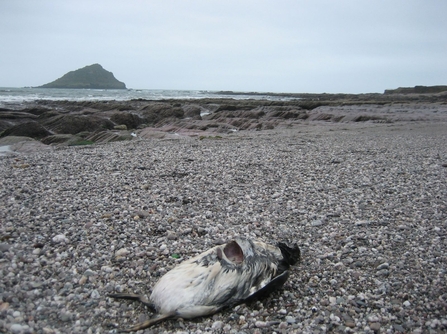The unfolding disaster of hundreds of seabirds floundering and dying along England’s southern coast because of marine pollution has prompted the RSPB, the RSPCA and The Wildlife Trusts to write to Stephen Hammond MP – a minister at the Department for Transport – alerting him to the growing threat posed by the discharge from ships of polyisobutene (PIB).
The three charities are urging the minister to take a lead in driving an international reclassification of the man-made substance to prohibit the discharge of PIB at sea. PIB renders seabirds helpless, restricting their mobility and preventing them from feeding as the chemical coats their plumage.
This year, two pollution incidents involving PIB have been reported along the South West coast. Research has also revealed that at least three other incidents have led to mass seabird deaths around European coasts in recent years. In calling for action, the three organisations also cite the predicted 40 per cent growth in the international transport of polyisobutene in the next four years. The chemical is used in the manufacture of a range of products including lubricants to football bladders, chewing gum to cling film, and it is also used to control the thickness of oils.

